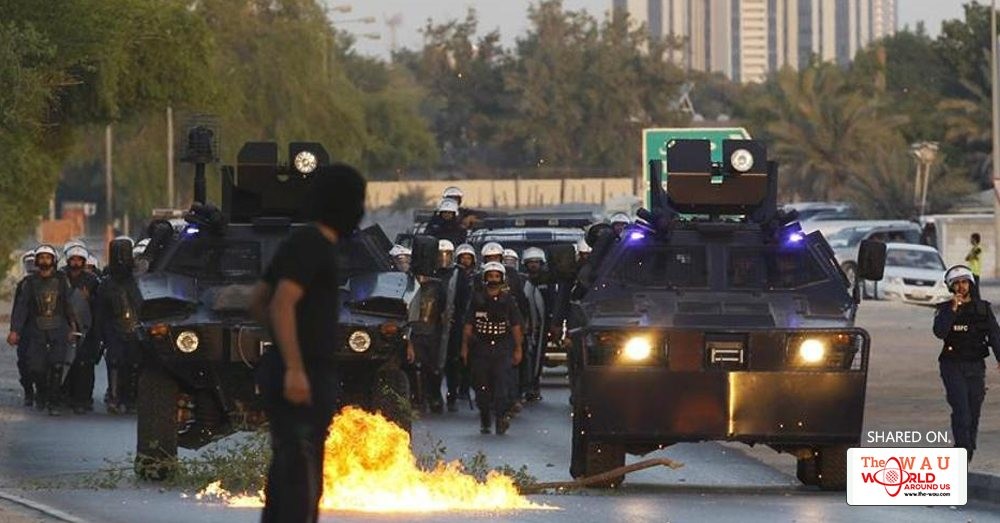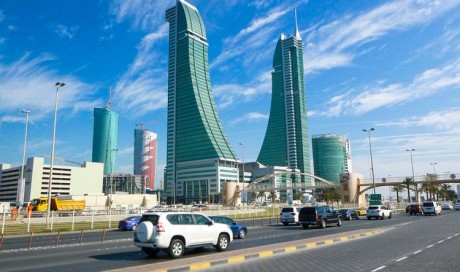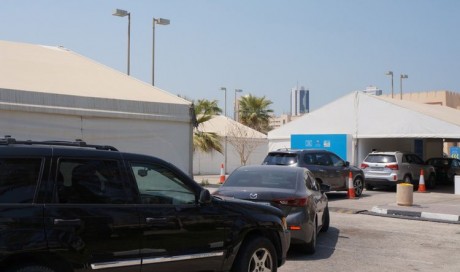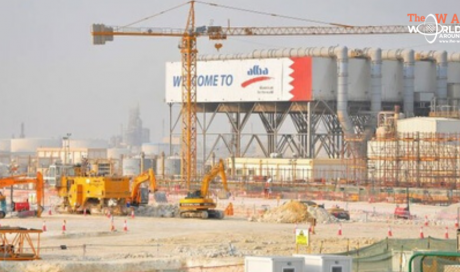Bahraini police have arrested 20 people in a crackdown on Shia villages, as legislators approved a constitutional amendment that could see civilians tried in military courts in the Sunni-ruled kingdom.
The lower house of parliament on Tuesday voted in favour of a constitutional amendment which drops a clause restricting military trials to offences committed by members of the army, police or other security branches.
Under the amendment to Article 105, which also needs approval in Bahrain’s appointed upper house, civilians charged with “damaging public interest” or with terrorism -- broadly defined -- could now face trial in a military court.
Bahraini authorities have made sweeping use of counter-terrorism legislation in past weeks as they tighten their grip on political protests, which have entered their seventh year.
Between February 9 and February 19, police arrested 20 residents of Shiite villages, aged between 20 and 65 and including four women, in what the government described as a crackdown on “terror cells”.
Those arrested face charges including “plotting acts of terrorism” and aiding and abetting fugitives. Eight of them are also charged with having “received military training on arms and the use of explosives in Iran and Iraq”.
Authorities in the small but strategic archipelago state have accused Shiite-dominated Iran of meddling in the domestic affairs of Arab countries in the Gulf. Iran has consistently denied the charge.
- Tightening grip -
International rights groups have accused Bahrain of criminalising dissent on the Shiite-majority country, ruled for two centuries by the Al-Khalifa dynasty.
Protests demanding a constitutional monarchy with an elected government came to the streets of Manama in mid-February 2011, centred around the famed Pearl roundabout which authorities have since razed.
Sporadic unrest has gripped the country since and access remains largely off-limits to foreign journalists.
Demonstrations intensified following last week’s anniversary of the launch of the Manama protests which were crushed the following month with the support of forces from neighbouring Saudi Arabia.
On Tuesday night, residents of Nuwaidrat village, south of Manama, took to the streets to protest the death of Abdullah al-Ajouz, 22, during a police raid the previous day to arrest him, witnesses told AFP.
In tightening their grip, authorities have outlawed Bahrain’s Shiite opposition and handed many of its leaders long jail terms, several on “terrorism” charges.
The main opposition Al-Wefaq lost an appeal this month against a court order dissolving the group, which was found guilty of inciting violence, encouraging protests and “harbouring terrorism”.
Al-Wefaq’s leader Sheikh Ali Salman has been behind bars since 2014 after being convicted of inciting hatred.
The country’s Shiite spiritual leader, Sheikh Issa Qassem, was stripped of his citizenship last year for “serving foreign interests”, another allusion to Shiite Iran.
Prominent human rights activist Nabil Rajab has been on trial for tweets deemed hostile to Bahrain and Saudi Arabia. The next hearing is scheduled for March 22.
Rajab, who has been denied bail, is also charged with making false accusations against Bahrain in a series of television interviews in which he criticised the government.
Share This Post












